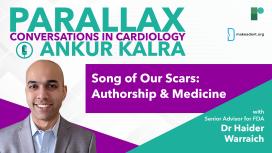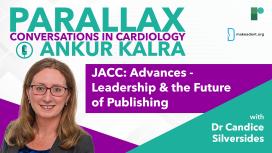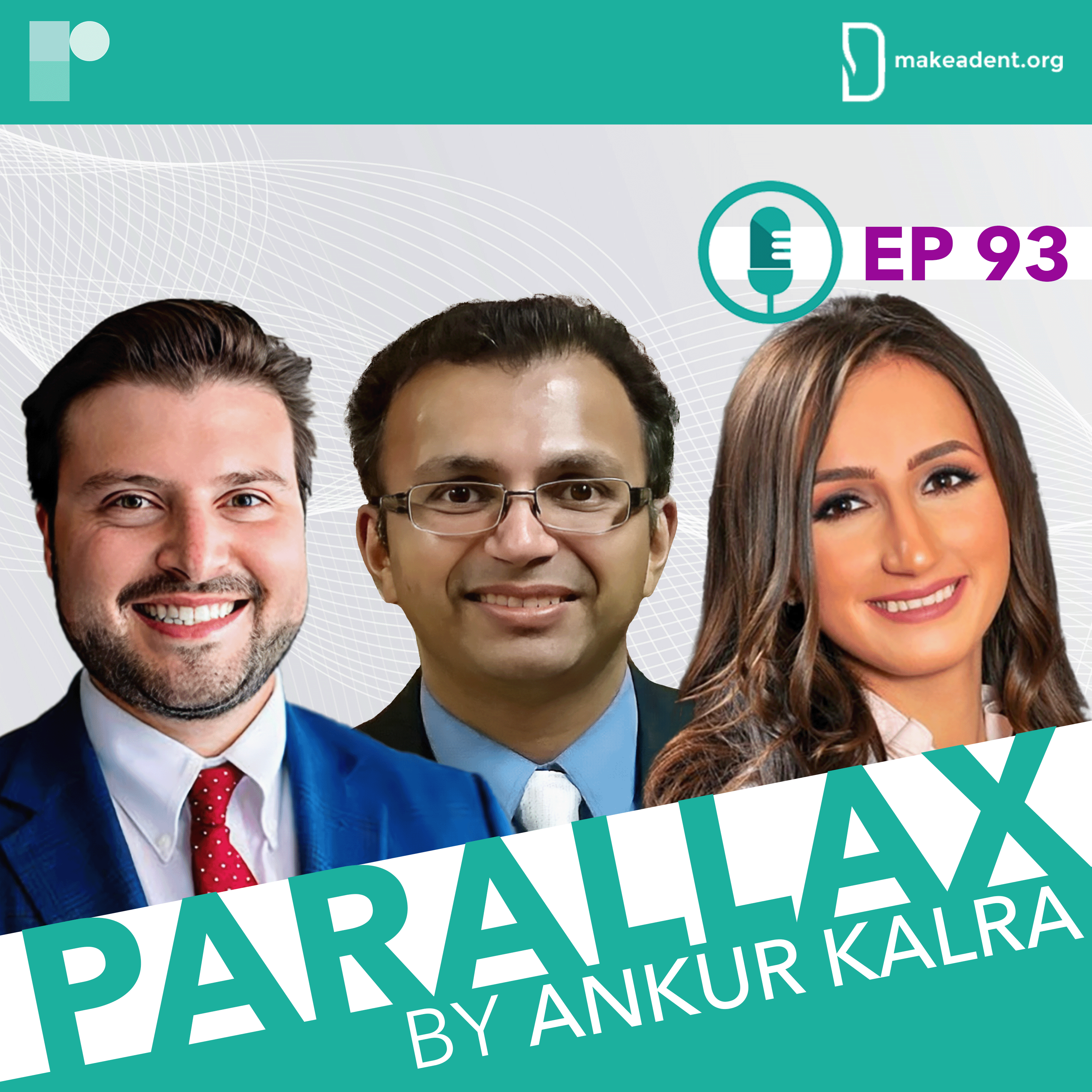
In this week's Parallax, Dr Ankur Kalra is joined by guests, Dr Rama Ellauzi, Dr Nandan Anavekar and Dr Anthony Kashou, also known as The EKG Guy. Together, they delve into cardiovascular education and the Global Cardiology University (GCU).
The genesis of GCU traces back to Dr Kashou's time as an intern at Mayo Clinic. Recognizing the challenges of postgraduate education, Dr Kashou embarked on a journey to enhance early-level training. Drawing inspiration from his own struggle to comprehend electrocardiograms (EKGs), he set out to build a comprehensive database. This eventually led to the birth of GCU.
Dr Ellauzi, Dr Anavekar and Dr Kashou share their passion for education and the devotion that drew them to the GCU. They explore the vision of GCU, which revolves around creating a community space where knowledge is shared, aligning with educational trends, and empowering learners. Through scientific content evaluation and a commitment to providing premium yet affordable materials, GCU embraces community ownership. As the team has grown, teachers and students now find themselves in the same virtual room, fostering a collaborative and supportive environment.
The conversation moves to the platforms and interactions offered by GCU. Dr Ellauzi and Dr Kashou shed light on the diverse formats available. They discuss the process of content vetting, emphasizing the importance of explanations and foundations for learners at all levels. They stress that GCU, serves as a complementary resource, enhancing traditional education methods for learners at different stages of knowledge acquisition.
How can we empower learners in the digital age? How do we build global learning communities and cultures? When should new knowledge become part of a curriculum?
Questions and comments can be sent to “podcast@radcliffe-group.com” and may be answered by Ankur in the next episode.
Guests: @nandananavekar, @EllauziRama, @TheEKGGuy host: @AnkurKalraMD and produced by: @RadcliffeCARDIO.
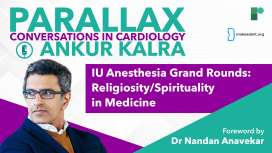

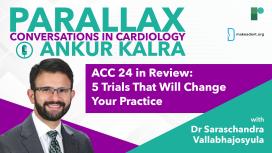
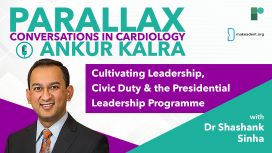
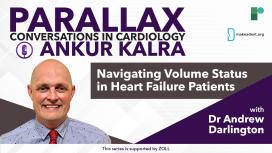
Together, Dr Kalra and Dr Darlington delve into the significance of assessing volume status in patients with heart failure, highlighting its continued relevance in 2024, including the availability of new diagnostic tools, including the Heart Failure Management System (HFMS).
This series is supported by ZOLL and is intended for Health Care Professionals.
